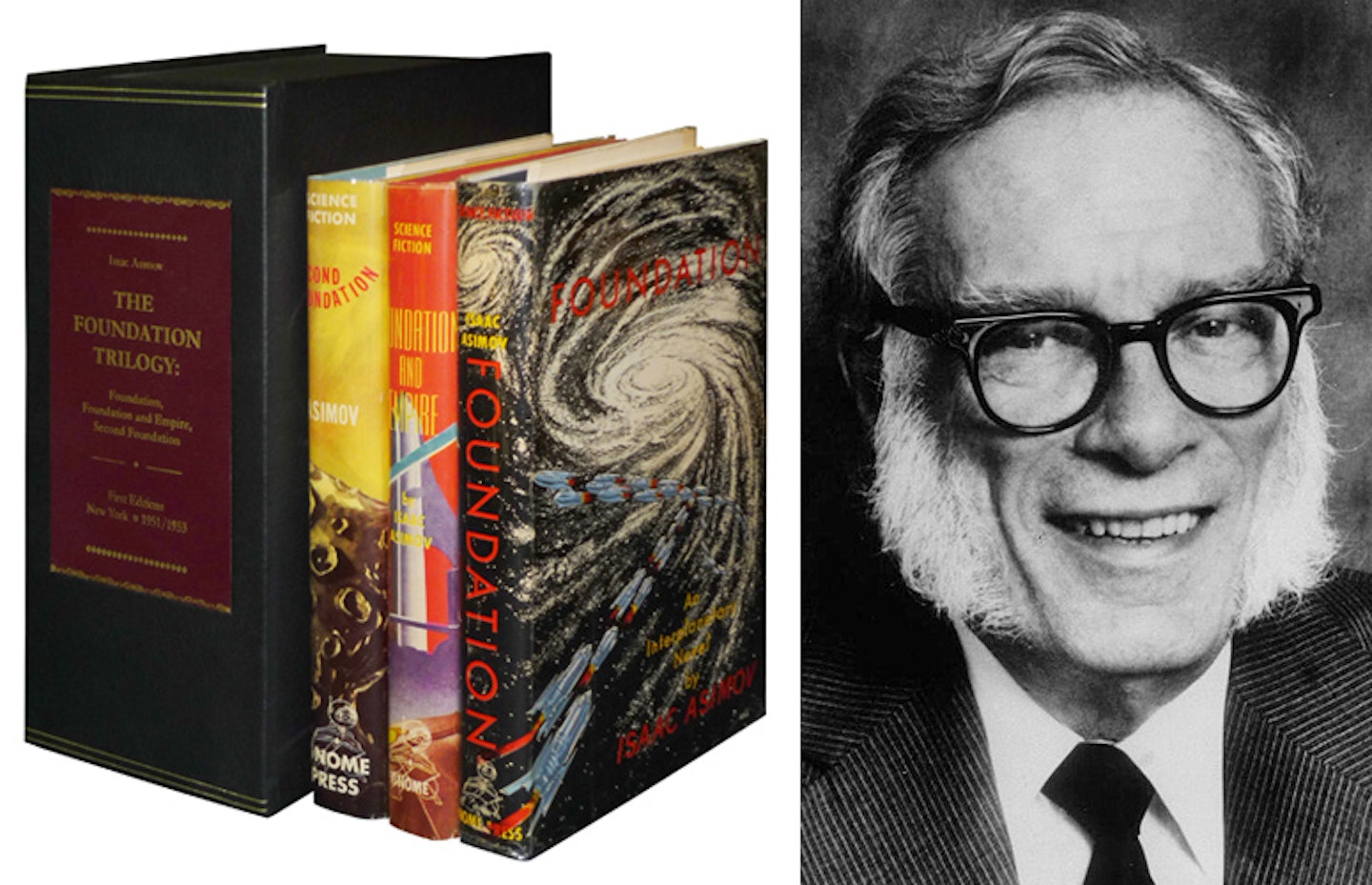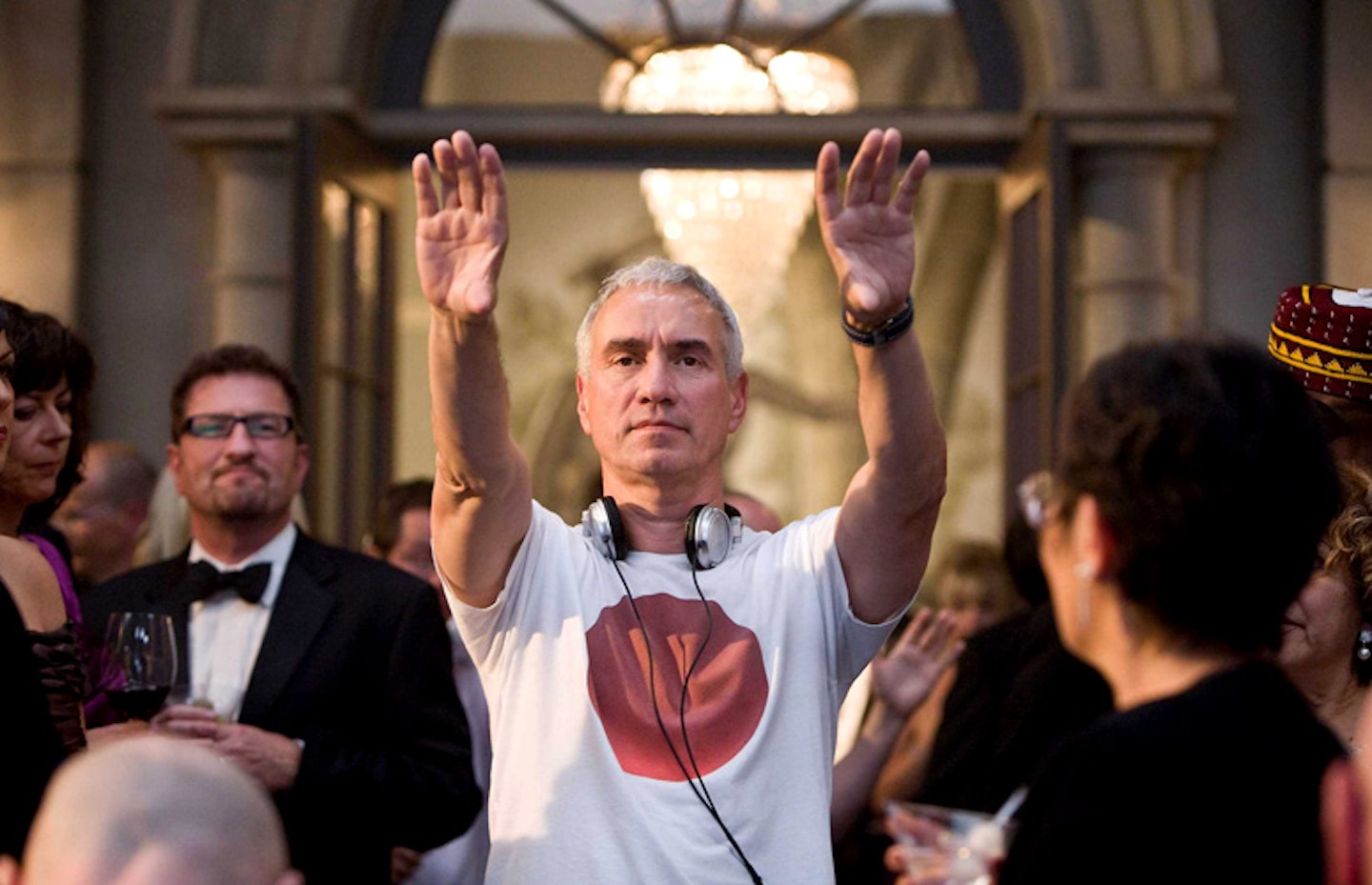Today, word emerged that Interstellar screenwriter Jonah Nolan is working up a Foundation TV series for HBO. As ever, the combination of hot-property writer, beloved genre epic and channel-that-can-do-no-wrong is an exciting one, but what exactly is all the fuss about here? Here’s a quick foundational guide…

So what is Foundation?
Science-fiction legend Isaac Asimov wrote prolifically throughout his life – as in, he wrote or edited 500 books plus short stories – but two groups of books stand above the rest in terms of popularity and influence. His Robot series set out the Laws of Robotics, which researchers in the field refer to in real life, and also gave us The Bicentennial Man and I, Robot (but don’t hold that against him; both books are significantly better than their films). His second great triumph was the Foundation series, published between 1942 and 1993.
Yes, but what is it?
Okay, our story starts (apart from prequels) amid the splendour of a Galactic Empire that spans 12,000 worlds. All is shiny and rosy and terribly rich – but a mathematician called Hari Seldon predicts that it is all going to fall apart in the next hundred or so years. See, Seldon has developed a new branch of maths called “psychohistory” that, given enough data and processing power and a certain knowledge of human psychology, can predict the course of human history. It can’t tell if you, as an individual, will rise or fall – but it can predict the rise and fall of societies and, yes, empires.
Uh huh, and the Foundation?
Well, Seldon is put on trial for treason for saying all this, but it turns out that’s pretty much a ruse, and that he and his supporters are being sent away to a remote world called Terminus with a barrel-load of scientific and technological information to sit out the coming Dark Ages and preserve humanity’s knowledge. By doing so, they will shorten the interregnum from 30,000 years to a mere millennium. *That *world supports, and really becomes, the 'Foundation' of the title and the foundation on which a new Galactic Empire will be built.
Finally! So that’s the Foundation of the title?
Yes, unless we’re talking about *Second *Foundation. You see, the psychohistorians themselves set up a top-secret base in a top-secret location somewhere in the galaxy to keep psychohistory going without colouring their own results by overlapping with the Foundation itself. That’s the super-secretive Second Foundation, which is a sort of meta-safety device for galactic civilisation. If the Foundation fails, the Second Foundation can still get everything back on track.
You keep talking about civilisations. Are actual people involved in all this?
Why, yes! Hari Seldon himself is a likeable figure, an academic turned rebel turned wise old man of psychohistory (he’s most active in the prequels, Prelude To Foundation and Forward The Foundation, before anchoring the first section of the first book). Then there’s the Mayor of Terminus City, Salvor Hardin, who sees his planet through its first major crises following the fall of the Empire. He’s smart, a bit maverick and extremely cool. And there is a whole mess of teams in the sequels, with the introduction of an exceptionally interesting villain in the Mule, a shadowy figure who threatens to turn the Foundation’s growing civilisation into his own personal Empire.
So why hasn’t it been adapted before?

The story spans a thousand years or so, which is the big problem. In the 1990s, New Line spent $1.5 million developing a film version before abandoning the attempt and turning their attentions to a J.R.R. Tolkien fantasy epic instead (wonder how that turned out?). In 2008, they tried again, before Columbia bought the rights in 2009 and lined Roland Emmerich (above) up to make the attempt, which Emmerich talked about last year on our podcast.
How do you tell a millennium-long story?
You probably spread Seldon’s own story from those two prequels and the first part of Foundation across the series (not a terrible idea; the first prequel in particular is rather good). Otherwise, you’re going to have to change your cast and jump forward a century or so each episode. Other options might be to focus on the Mule, or tell it through the eyes of the mysterious R. Daneel Olivaw, a figure who appears in numerous guises throughout the series (spoiler: he’s a robot, and in fact links Asimov’s Robot, Empire and Foundation series across a 20,000 year life span, but don’t even worry about that). Beyond those three, you’re getting into really sci-fi names like Ebling Mis and Janov Pelorat and Blissenobiarella, so maybe save that for season two, eh?
Is this a good thing?
Yes, it probably is. HBO offers a bit more flexibility in terms of storytelling than film would, and if they’re really lucky this could prove a sci-fi series to match their popular fantasy epic. And Jonah Nolan certainly seems like a strong choice for the job, so colour us intrigued.